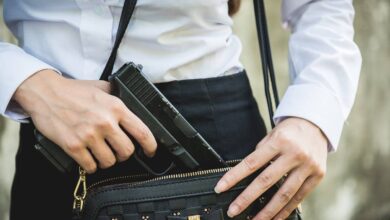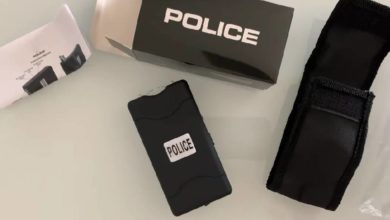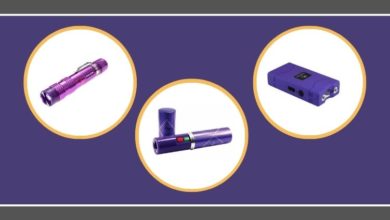When Is It Legal to Pepper Spray Someone?
KEY TAKEAWAYS
Pepper spray is a commonly used self-defense tool that can help individuals protect themselves in potentially dangerous situations. However, it is important to understand the legal implications of using pepper spray to ensure that it is used appropriately and responsibly.
In this article, we will explore the question, “When is it legal to pepper spray someone?” and provide comprehensive information on the topic.
How is Pepper Spray a Self Defense Tool?
Pepper spray, also known as OC spray (Oleoresin Capsicum), is a non-lethal aerosol spray that contains a derivative of hot chili peppers. It is typically used for self-defense purposes and can cause temporary incapacitation, intense pain, and irritation when sprayed on the face or eyes of an attacker.
How does pepper spray work?
When pepper spray is sprayed on an individual, it affects the respiratory system, causing immediate inflammation of the mucous membranes. This leads to temporary blindness, difficulty breathing, and extreme discomfort, allowing the victim to escape or seek help.
Types of pepper spray
There are various types of pepper sprays available on the market, including:
-
Stream pepper spray: Emits a concentrated stream, providing accuracy and range.
-
Cone fog pepper spray: Disperses in a wide cone-shaped pattern, making it effective in close-quarters situations.
-
Gel pepper spray: Adheres to the target upon impact, reducing the risk of blowback and making it suitable for indoor use.
-
Foam pepper spray: Forms a sticky foam upon contact, immobilizing the assailant and minimizing cross-contamination.
Self-Defense Laws and Pepper Spray
The right to self-defense
In many jurisdictions, individuals have the right to protect themselves from harm. Self-defense laws vary by country and state, so it is important to understand the specific regulations in your area.
Legal restrictions on pepper spray
While pepper spray is generally legal for self-defense, there are certain legal restrictions imposed to ensure responsible use. These restrictions typically involve factors such as the concentration of the spray, the size of the canister, and restrictions on who can purchase and possess pepper spray.
State-specific regulations
Each state within the United States may have its own regulations regarding pepper spray. It is crucial to familiarize yourself with the specific laws and requirements of your state to ensure compliance and avoid legal issues.
When Can Pepper Spray Be Used Legally?
Immediate threat to personal safety
Pepper spray can be used legally when there is an immediate threat to your personal safety or the safety of others. It is intended to be used as a defensive tool when faced with an attacker or an aggressive individual who poses a threat.
Reasonable use of force
To use pepper spray legally, it is important to employ a reasonable amount of force. This means that the level of force used must be proportional to the threat encountered. It is not appropriate to use pepper spray as a first resort in a situation where the threat is minimal or can be de-escalated through other means.
Protecting oneself or others
Pepper spray can be used legally to protect yourself or others from imminent harm. If you genuinely believe that using pepper spray is necessary to prevent harm to yourself or someone else, it may be justifiable under self-defense laws.
Legal Requirements for Using Pepper Spray
Age restrictions
Most jurisdictions impose age restrictions on the purchase and possession of pepper spray. The minimum age requirement varies by location, but it is typically around 18 years old. It is crucial to adhere to these age restrictions to avoid legal consequences.
Purchase and possession regulations
In many areas, pepper spray can be purchased from authorized retailers without a permit. However, some regions may require a permit or impose certain restrictions on the purchase and possession of pepper spray. It is essential to be aware of these regulations to ensure compliance.
Usage guidelines
When using pepper spray, it is important to follow the instructions provided by the manufacturer. These guidelines typically include aiming for the attacker’s face, maintaining a safe distance, and avoiding excessive use. Proper usage not only ensures effective self-defense but also minimizes the risk of legal repercussions.
Pepper Spray and Non-Lethal Force
Avoiding unnecessary harm
One of the advantages of using pepper spray as a self-defense tool is that it offers a non-lethal alternative to more lethal forms of force. By using pepper spray, individuals can protect themselves without causing significant harm or potentially fatal injuries to their attackers.
Minimizing potential injuries
Compared to other self-defense tools, such as firearms or knives, pepper spray is generally considered to be less likely to cause severe injuries. It is an effective means of incapacitating an assailant temporarily, allowing the victim to escape and seek help.
Comparing pepper spray to other self-defense tools
While pepper spray is a popular choice for self-defense, it is essential to consider other available options and their respective legal implications. Firearms, stun guns, and other weapons may have different legal requirements and restrictions depending on your jurisdiction.
Factors Influencing Legality
Proximity to law enforcement
The legality of using pepper spray may also be influenced by your proximity to law enforcement. In areas where law enforcement response times are longer, individuals may have more leeway in using pepper spray for self-defense purposes. However, it is crucial to understand that this can vary depending on the circumstances and local regulations.
Prior incidents or threats
If you have previously been the target of attacks or threats, it may impact the legality of using pepper spray in self-defense. Demonstrating a history of threats or violent incidents may provide additional justification for the use of pepper spray as a defensive tool.
Surrounding circumstances
The specific circumstances in which a potential attack or threat occurs can also influence the legality of using pepper spray. Factors such as the location, time of day, presence of witnesses, and the nature of the threat can all be taken into account when determining the legality of self-defense actions.
Situations Where Pepper Spray is Generally Legal
Walking alone at night
Walking alone at night can be a vulnerable situation, especially in urban areas or locations with a high crime rate. In such circumstances, pepper spray is generally considered a legal and effective means of self-defense.
High-crime areas
If you live or work in a high-crime area, carrying pepper spray can provide an added sense of security. However, it is crucial to familiarize yourself with the specific laws and regulations in your area to ensure that you are using it legally.
Jogging or hiking in remote areas
When engaging in outdoor activities such as jogging or hiking in remote areas, encounters with wildlife or aggressive individuals can occur. Carrying pepper spray can be a useful precautionary measure to protect yourself in these situations.
Situations Where Pepper Spray is Generally Illegal
Using pepper spray as a weapon
It is important to note that using pepper spray as an offensive weapon or with the intent to cause harm is generally illegal. Pepper spray should only be used in self-defense situations, where there is an immediate threat to personal safety.
Non-self-defense situations
Using pepper spray in situations where there is no immediate threat or where there are alternative means of resolving the conflict is generally illegal. It is crucial to use pepper spray responsibly and only in situations where there is a genuine need for self-defense.
Prohibited locations
Certain locations, such as government buildings, airports, schools, and public transportation, may have restrictions on carrying pepper spray. It is essential to familiarize yourself with these prohibited areas to avoid legal issues.
Frequently Asked Questions
1. Can I carry pepper spray on an airplane?
No, pepper spray is not allowed on airplanes as it is considered a hazardous material. The Transportation Security Administration (TSA) prohibits carrying pepper spray in both carry-on and checked luggage.
2. Can I use pepper spray against animals?
Yes, pepper spray can be used against aggressive animals in self-defense situations. However, it is important to check the specific regulations in your area, as some jurisdictions may have additional restrictions or guidelines for using pepper spray on animals.
3. Can I use pepper spray in a road rage incident?
Using pepper spray in a road rage incident is generally not recommended and may have legal consequences. It is crucial to prioritize de-escalation techniques and contact law enforcement if necessary.
4. Is there a limit to how much pepper spray I can carry?
The limitations on the amount of pepper spray an individual can carry vary by jurisdiction. Some areas may have restrictions on the size of the canister or the concentration of the spray. It is essential to review the regulations specific to your location.
5. Can I use pepper spray if I feel threatened but not in immediate danger?
Using pepper spray when you feel threatened but are not in immediate danger can be seen as an excessive use of force and may have legal implications. It is generally recommended to use pepper spray only when there is an immediate threat to personal safety.
Conclusion
Pepper spray is a valuable self-defense tool that can provide individuals with a sense of security and protection in potentially dangerous situations. However, it is essential to understand the legal aspects surrounding its use to avoid any legal consequences.
By familiarizing yourself with the laws and regulations specific to your jurisdiction, adhering to usage guidelines, and employing pepper spray responsibly, you can ensure that you are using it legally and effectively.
Are you wondering about how painful pepper spray can be after being sprayed? Read more about its impact on the human body from our blogs at Security Forward.




